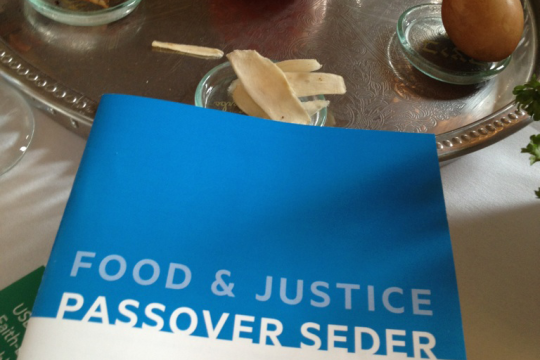The Journal of Youth Engagement is an online forum of ideas and dialogue for those committed to engaging youth in vibrant Jewish life and living. Join the discussion and become a contributor.
By Ellie Klein Goldman
In the fall of 2013 Temple Shalom in Newton, MA launched a new weekly program for 7th and 8th graders called MINCHA. The evening includes dinner, time with friends, creative Jewish learning and leadership development. In designing MINCHA we had a number of goals in mind:
- Create a safe and supportive environment for teens.
- Foster positive connections with one another and with enthusiastic staff.
- Introduce teens to Jewish living in creative and active ways.
- Develop teens’ skills as leaders.
- Convey an appreciation that their schedules are complicated, their interests varied and that every commitment demands to be the top priority.
Related Posts
Image

Passover 2024: The Three Central Messages of Pesach
The Exodus story is the master narrative of the Jewish people. As most of us know, it tells the story of the Hebrew slaves in Egypt and the rise of Moses as their liberator. It reminds us that in 2024, the universality of Passover's three-part message again reverberates through the generations: freedom, love, and justice.
Image

Modern-Day Plagues of Injustice and Inequality
On Passover, we recount the Ten Plagues that were inflicted upon the Egyptian people. Here are some of the "plagues" and injustices that afflict our present-day society -- and actions you can take.
Image

Setting Your Leaders Up For Success
It's board nomination season again! Time to compile lists, get recommendations, and start calling the future leaders of your congregation. The URJ has resources, advice, and initiatives to set you and your board up for success.